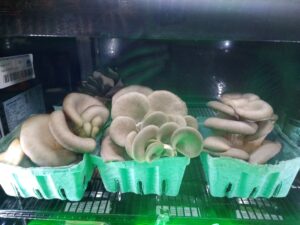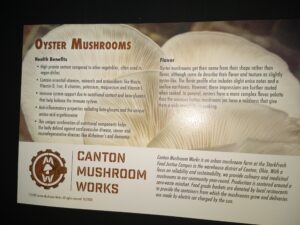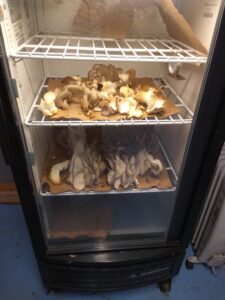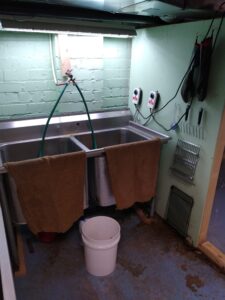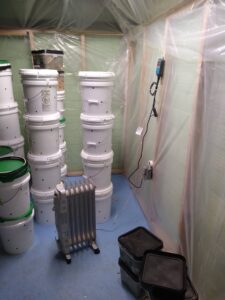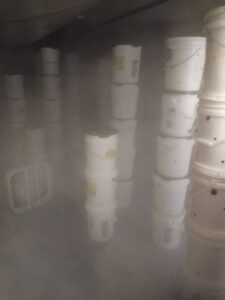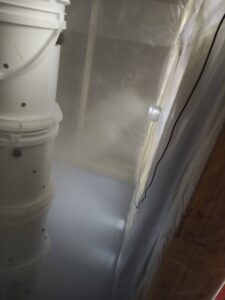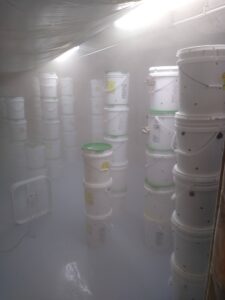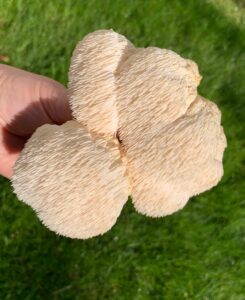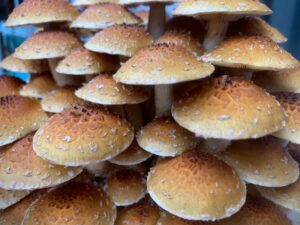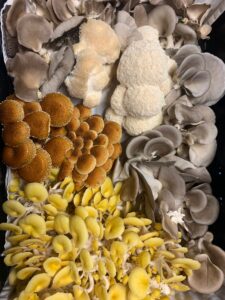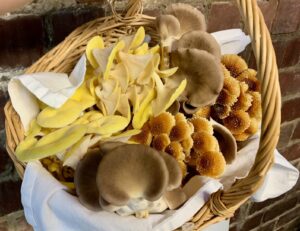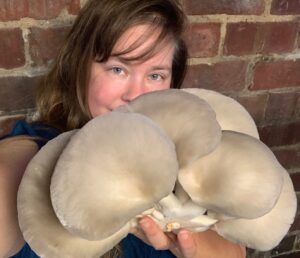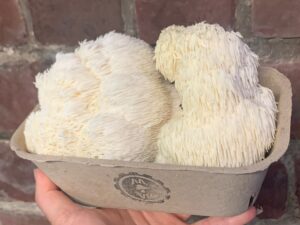Project Overview
Information Products
Commodities
- Miscellaneous: mushrooms
Practices
- Crop Production: Mushrooms
- Farm Business Management: apprentice/intern training, farm-to-restaurant
- Production Systems: Mushrooms
- Sustainable Communities: employment opportunities, food hubs, local and regional food systems, new business opportunities, quality of life, urban agriculture
Summary:
In Canton Ohio, 32% poverty rates are a reality. Those seeking employment in order to be able to afford food and be able to pull themselves out of poverty, are few and far between, especially without a college education or with a criminal record. This past year, StarkFresh has opened its Food Justice Campus, located within the heart of downtown Canton, Ohio in a nearly 100-year-old building. In addition to removing barriers for people to have their own food-related businesses with shared office space and a shared, licensed commercial kitchen, the Campus basement has been set aside to allow for a commercial mushroom growing operation. Not only are there no other locally-owned mushroom farms, but also none are designed to create employment opportunities for low-income individuals who are seeking a way to earn a living. Locally, the demand is high for gourmet-grade oyster mushrooms. By growing in an otherwise unusable interior space, we are able to better use resources and not have to take up potentially valuable land for other agricultural crops. Through the creation of this pilot mushroom farm, we hope to create an example of how a different approach to food and employment can create a meaningful way out of poverty.
We were able to find someone to assist with the build-out of the open basement to transform the empty space, be able to install ventilation, and keep humidity levels where they need to be for optimal mushroom cultivation. There has been a bit of trial and error in terms of floor coverings, adjustment of lighting, airflow and humidity levels to ensure consistent, fruitful yields to be able to keep up with commercial wholesale and retail sales of several varieties of mushrooms being produced.
We learned that in order to control contamination, there had to be more diligence done when pasteurizing the straw medium. Once contamination was under control, production was not only consistent but also improved greatly. Kara is producing 30 pounds weekly which is enough to cover her existing wholesale customers. She has been able to expand to offer six varieties with regularity, pink, yellow and grey oysters, lions mane, king oyster, and chestnut mushrooms respectively.
Project objectives:
- Prep and equip the basement at the Food Justice Campus to be a suitable space for mushroom cultivation.
- Test different growing mediums using food scrap composts, straw, newspaper, and coffee grounds.
- Take an unskilled, low-income individual and teach them how to cultivate mushrooms.
- Increase mushroom sales to local restaurants.
- Document the entire process to be able to duplicate at a later date, at a different location, with different individuals.
The basement has been adapted and tweaked several times now to allow for an increase in production. We've settled upon pasteurized straw as a growing medium after trying a few other mediums that had their own sets of problems.
The individual farming the space had zero mushroom-growing knowledge prior to the pandemic and lost her job as a result of the pandemic. They've been able to rely on our knowledge to not only grow mushrooms, but also to market and work on their new business.
With the pandemic adversely affecting so many restaurants, there haven't been as many sales to restaurants as we would like, but instead we've been able to find several wholesale market customers at grocery stores and a growing direct-to-consumer customer base from farmers markets.
We are currently still collecting data to be able to create a bit of a blueprint for others who may be interested in mushroom growing in a similar space.
Grocery Store chains have proven to be a great place to sell fresh mushrooms to customers.
